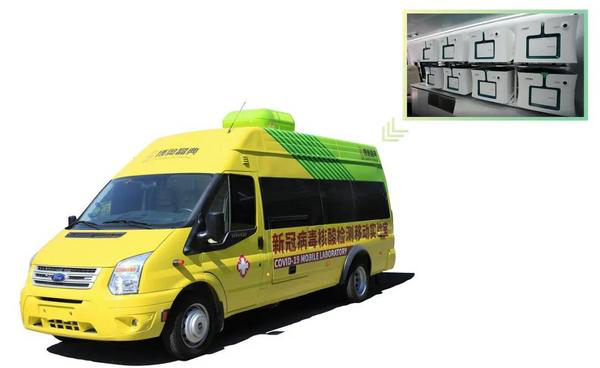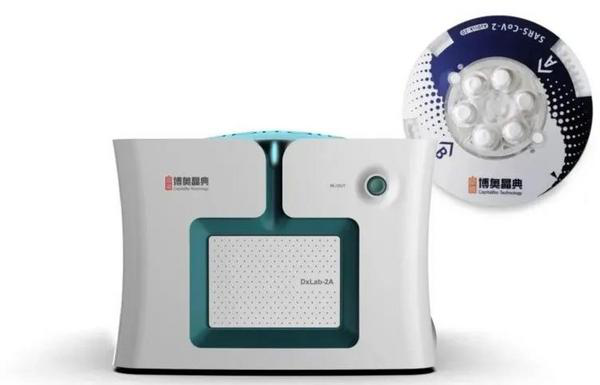CapitalBio delivers China’s first van-based mobile lab for COVID-19 test
2020-10-21
China’s first integrated COVID-19 mobile testing lab to be transported by van made an appearance at the unveiling ceremony of the Zhuhai Nucleic Acid Testing Base in Zhuhai city, South China’s Guangdong province, on Oct 19.
The product, jointly developed by Tsinghua University, the Beijing National Engineering Research Center for Biochips and Tsinghua Holdings' subsidiary CapitalBio Corporation, provides technical support and guarantees for regular epidemic prevention measures.

A rendering of the mobile nucleic acid detection lab [Photo/thholding.com]
The fully-automatic and portable detection system integrates all steps into an enclosed room and means the entire process can be carried out unaffected by the site environment and the skills of workforce.
“The lab is installed with throat swab sampling robots, rapid inactivation instruments and a 5G direct reporting system,” said Cheng Jing, president of CapitalBio Corporation, academician of the Chinese Academy of Engineering and chair professor of Tsinghua University.
In this context, the new nucleic acid test can be completed within 45 minutes, more than three times faster than conventional PCR. The product is expected to meet the needs of flexible inspections for entry and exit at ports and of emergency medical services during epidemic prevention work.

A rendering of the integrated nucleic acid detection chip system [Photo/thholding.com]
To date, the integrated chip system for on-site detection of COVID-19 has obtained authorizations of four invention patents and five utility model patents. A vehicle equipped with eight detectors can process 500 to 2,000 samples per day.
According to a project leader from CapitalBio, the mobile lab slashes power consumption by using a van carrier, a low-power and efficient viral inactivation system, and an RV air conditioner.
Although there are already several sorts of mobile testing labs in China, most of them are trucks or buses whose compartments are divided into four rooms and are installed with conventional PCR instruments.

 Facebook
Facebook WeiXin
WeiXin CONTACT US
CONTACT US










 Tsinghua Holdings works hard for better ecological environment
Tsinghua Holdings works hard for better ecological environment